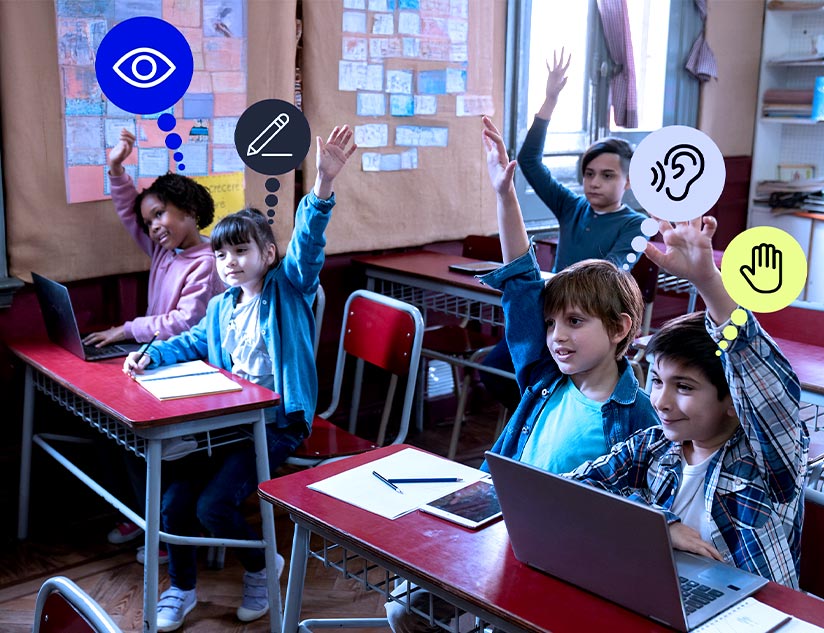5 Efficient Ways to Train Employees Using E-Learning
Do you want to train and develop your staff, but are resistant to the idea of bringing in a presenter at a high cost and low content retention? E-Learning enables employees to access training quickly and effortlessly, allowing them to move forward in their work in an efficient and timely manner.
E-Learning is an excellent form of content communication because it allows the learner to interact deeply with the material. Educational best practices show that the learner needs to interact with the material and then discuss with others what they have learned. A static video presentation will not meet this need, but an interactive medium such as MagicBoxTM’s cloud-based learning platform will enable corporates to interact with the material to a deeper level.
Today’s employees are always on the go trying to accomplish a lot of things simultaneously. As a result, they need to be able to learn on the go! An employee who has access to your professional development materials can learn while riding the train to work, waiting for their kids at school pickup, or in a coffee shop on the weekend will be more effective. Working through the material at their own pace in a flexible format will enable learners to develop professionally in an efficient manner.
Just like trying on shoes, there is no ‘one-size-fits-all’ approach to learning. By providing an interactive assessment, companies can customize and personalize training for the specific student, as seen in this case study highlighting MagicBoxTM’s work with Cloud Education. This customization will result in an employee who can challenge the areas where they are weak, and not waste time on material that they already comprehend.
Walking down the street today, you would be hard-pressed to see a person who does not have their mobile device with them. In fact, most Millennials will go as far as sleeping with their phones in their beds! Utilize this Millennial characteristic for your benefit, by providing quick, easy access to microlearning on your staff’s personal devices. If an employee runs into a problem, they can quickly pull out their phone, and use the training provided. By integrating micro-learning into the corporate training environment, they can rapidly solve the problem, and move on with their work.
What Kind of E-Learning Tools Are Available?
You can see the benefit of E-Learning, and you are ready to move forward. But what kind of tools are available? How do you implement those into your learning strategy?
1. Online Micro-Library
Today’s learners are busy, and your information needs to be accessible instantly in short 90-120 second segments. Providing information in a short video or exercise followed up by quizzes with instant feedback increases student engagement and content retention. Using a micro-library enables mobile users to learn on the go and quickly meet their educational needs when a situation arises.
2. Gamification
If you are questioning the relevance of gamification in the workplace, ask your employees how many of them have at least one game on their mobile device. The odds are that most people have played games on their phone within the last year, and this can be used to your advantage. Instead of wasting time playing Fortnite, you can utilize strategic gamification of your content and engage your employees in learning while providing a fun environment. Gamification can be a fantastic medium for learning as a study by Badgeville, a global leader in business gamification, showed that games in the workplace increased employee productivity by 90%!
3. Coaching/Mentoring
Today’s employees are extremely connected socially. Their relationships drive them, and they value the insight that their social networks provide. Capitalizing on this need by delivering online coaching and mentoring that will empower your staff to grow professionally. Online coaching allows your team to benefit from the relationship on a more flexible timetable for all staff members involved.
4. Social Learning
As the Millennial generation fills the workforce, their desire for social connections will impact the way that they learn professionally. Building off of their need for social relationships, E-Learning can enable learners to collaborate with other employees to achieve common goals. Accomplishing their work alongside other learners will encourage greater retention of material.
5. Virtual Classrooms
With the changing economy, many companies are looking to reduce costs and maintain a healthy bottom line without sacrificing quality. This goal can be accomplished through virtual classrooms as staff can partake in virtual learning from their worksite without incurring extra costs in traveling to another location, accommodations or paying for an expensive facilitator to be onsite.
The connecting theme in successful companies is investing in the professional development of their team. If you choose to invest in your staff, is E-Learning the correct response for your corporate training needs? The team at MagicBoxTM would love to connect with you and help you determine how our corporate solutions can meet your E-Learning needs.
MagicBoxTM partners with business leaders to design, develop, and execute learning programs that will deliver successful outcomes. This mode of learning delivery will enable employees to be successful and employers to be strategic in their implementation.








